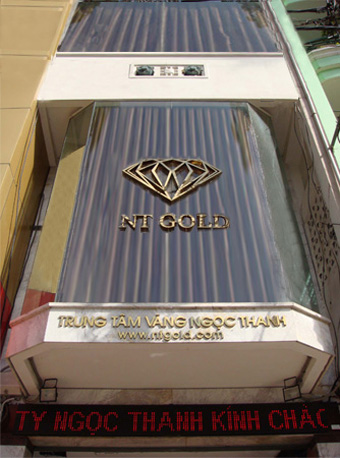Barclays Plc (BARC) and JPMorgan Chase & Co. (JPM) have become top players in global commodity derivatives trading, catching up with long-time leaders Goldman Sachs Group Inc. (GS) and Morgan Stanley. (MS)
The two banks tied Goldman Sachs and surpassed Morgan Stanley in the share of clients who use them for over-the- counter energy derivative trades, a Greenwich Associates survey of corporate treasury officials shows. In metals derivatives, JPMorgan dominated with a 60 percent market penetration.
“JPMorgan and Barclays, if you think about the longer-term trend, have gotten to the point where they’re now on a level footing with Morgan Stanley and Goldman Sachs,” Andrew Awad, a Greenwich Associates consultant who helped write a report on the findings, said yesterday in a phone interview.
JPMorgan’s global commodities business, led by Blythe Masters in New York, and the Barclays’s unit run by Roger Jones in London, have been expanding through acquisitions and hiring. In 2010, JPMorgan bought assets from RBS Sempra, a joint venture of Royal Bank of Scotland Plc and Sempra Energy, and Barclays hired seven salespeople from BP Plc to boost its presence in physical oil and natural gas markets in North America.
In energy derivatives, Barclays, Goldman Sachs and JPMorgan each had 41 percent market penetration, and Morgan Stanley had 37 percent, according to the survey. Among executives who use derivatives to hedge metals prices, 35 percent chose Barclays, 22 percent used Morgan Stanley and 21 percent did business with Goldman Sachs. Some companies use multiple investment banks for commodities derivatives trading.
Deepest Relationships
A 2009 Greenwich Associates survey of corporate executives, which didn’t provide a breakdown by type of commodity, found that 48 percent used Goldman Sachs and 43 percent did business with Morgan Stanley, compared with 34 percent for JPMorgan and 31 percent for Barclays.
Goldman Sachs, the fifth-biggest U.S. bank, continues to have the deepest relationships with commodity investors, the survey found. Sixty-three percent of commodity investors said they do business with the firm, followed by 55 percent for Barclays and 51 percent for JPMorgan. Morgan Stanley, whose commodities business is led by Colin Bryce in London and Simon Greenshields in Purchase, New York, had 39 percent.
U.S. banks don’t disclose commodities-trading revenue, instead combining the business with fixed-income and currency trading in a single line in company reports. Some firms’ quarterlyfilings break out gains and losses from principal transactions and market-making by product type, which exclude interest income and interest expense. JPMorgan, the biggest U.S. bank by assets, earned $2.82 billion from commodities in 2011 and Goldman Sachs made $1.59 billion, those disclosures showed.
Commodity Investors
Isabelle Ealet, who ran Goldman Sachs’s commodities business since 2007, was promoted at the end of 2011 to become one of three co-heads of global sales and trading. Commodities trading at Goldman Sachs is led by Gregory A. Agran in New York and Magid N. Shenouda in London, while the global commodity sales effort is supervised by London-based L. Peter O’Hagan.
JPMorgan was ranked first in the U.S. for both market share and service quality by corporate treasury officials who use energy derivatives, according to the survey.
Although European energy companies said they do more business with London-based Barclays than its rivals, they selected Goldman Sachs and Morgan Stanley, both based in New York, as the top banks for service quality.
Michael DuVally, a Goldman Sachs spokesman, declined to comment on the survey results, as did Mary Claire Delaney at Morgan Stanley, JPMorgan’s Jennifer Zuccarelli and Seth Martin at Barclays.
Quality of Service
Asian energy companies were most impressed with the quality of service from Standard Chartered Plc (STAN), a London-based bank that does most of its business in Asia, even as Morgan Stanley, Goldman Sachs and New York-based JPMorgan had the biggest market penetration, according to the survey. The number of corporate clients in Asia who said they trade energy derivatives with Standard Chartered doubled from 2010 to 2011, Awad said.
“It’s pretty amazing for them, actually,” Awad said of Standard Chartered’s performance. “They had massive, massive gains in Asia both in terms of footprint and in terms of the feedback we get for them on a quality basis.”
Greenwich Associates conducted the survey between September and November and released it yesterday. The Stamford, Connecticut-based firm said it interviewed 268 treasury officials at companies that hedge exposure to energy derivatives using over-the-counter derivatives and 97 that hedge metals exposure. It also interviewed 71 commodities investors that use over-the-counter derivatives, including pension funds, hedge funds and banks.
| TIME | |||||
|---|---|---|---|---|---|
| Sydney | Tokyo | Ha Noi | HongKong | LonDon | NewYork |
| Prices By NTGOLD | ||
|---|---|---|
| We Sell | We Buy | |
| 37.5g ABC Luong Bar | ||
| 9,287.90 | 8,407.90 | |
| 1oz ABC Bullion Cast Bar | ||
| 7,743.20 | 6,968.20 | |
| 100g ABC Bullion Bar | ||
| 24,714.30 | 22,104.30 | |
| 1kg ABC Bullion Silver | ||
| 4,883.40 | 3,543.40 | |
Powered by: Ngoc Thanh NTGold
- Online: 301
- Today: 5896
- Total: 7058066














